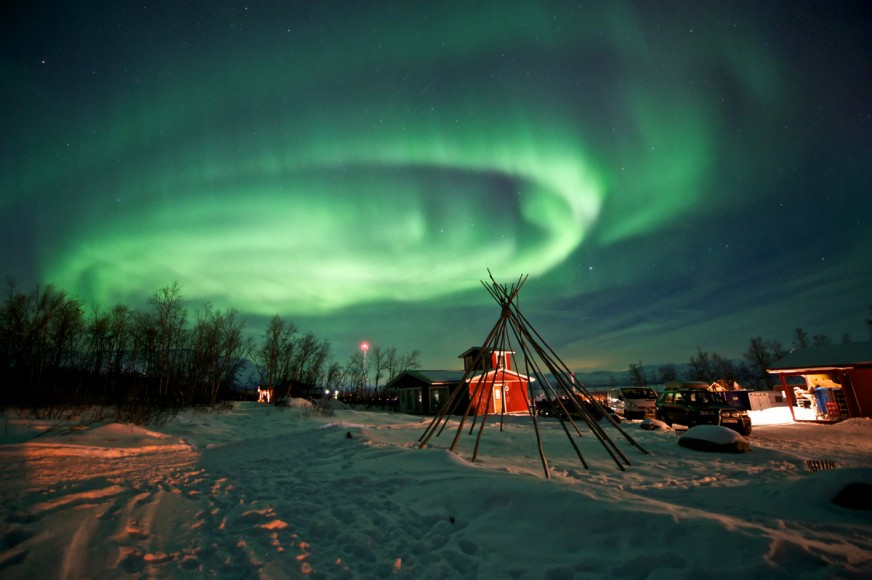In today’s world we have scientific explanation regarding enchanting aurora borealis that we acquire thanks to images collected from the space and scientific info gathered together in apps. We also have amazing photos that can be studied to enhance our knowledge. However, apart from the scientific explanations, there are so many myths on Aurora Borealis (northern lights as well as southern lights) that we need to examine them according to a geographical categorization.

Ancient Greece and Rome
Etymologically, the expression “aurora borealis” comes from Greek, “aurora” for sunrise and “borealis” for wind. The world must be a drastically different one than we know of today, since the well accepted name for it comes from Greeks. Light activities were never seen to be happening that much to the south where Greeks lived. Greeks were massively impressed by aurora borealis and made it part of Greek Mythology as the sister of Helios, the sun god, and Selene, the goddess of the moon. She raced across the early morning sky in her multi-coloured chariot to alert her siblings to the dawning of a new day. In other words, she blew the wind of sunrise as her name suggests. For Romans, northern lights were also believed to be the goddess of dawn.
Scotland and England
Here Aurora is not very favorable. It is said that the sky blazed red prior to the French Revolution and the lights were later considered to have been a harbinger of the coming strife, which are also called “Blood Aurora”, so rare that the originality of the photos that NASA officially shared is still controversial. So it’s quite natural that people of that day understood it as a special harbinger.

China, Japan and Australia
The ancient Chinese associated these lights with dragons. The belief is that the lights were viewed as a celestial battle between good and evil dragons who breathed fire across the sky.
Japanese people believed that if a child conceived under the northern lights it will be blessed with good looks and intellect. Indeed, so many tourists from the Far East visit Iceland because of this belief. So maybe keep away from the bushes when searching for the northern lights.
Aboriginal Australians watched the southern lights in awe as their gods danced overhead.

North America
North American tribes held many and varied beliefs about the northern lights. The Cree Indians believed that the Aurora was part of life’s circle and were the spirits of the dead who remained in the sky but apart from their loved ones. The lights were spirits of these departed friends and relatives trying to communicate with those they had left behind on earth.
Scandinavia, Iceland and Greenland
And the hometown of Aurora. This geography created the most fantastic legends. Icelandic ancestors associated the lights with childbirth and held that they would relieve the pain of delivery as long as the expectant mum didn’t look at the Aurora whilst giving birth. Otherwise the child would be born cross-eyed.
In Greenland the lights were also linked to giving birth but rather sadly they were judged to be the should of still born babies or even babies killed at birth. I guess this is the place where the worst feeling is attached to the Aurora.
The Finnish word for the Northern Lights “revontulet” translates literally as fire fox. In Finland it was held that the lights were caused by the forefox who ran so quickly across the snow that his tail caused sparks to fly into the night sky. Another belief held by the Sami people of Finnish Lapland was that the lights were created from the spume of water ejected from whales.
For the Swedish people, the Aurora was often seen as a portent of good news, a gift from benevolent gods providing warmth and light in the form of a volcano in the north, heralding a good harvest in the coming year.
For Vikings the situation is even more legendary. Dying in the battle seemed to occupy Norse mythology quite a bit and the Aurora was believed to be a glowing arch which led those fallen in battle Valkyrie to the warriors’ final resting place in Valhalla, where the father of gods Odin expect them.

Author: Tuba Ucak
